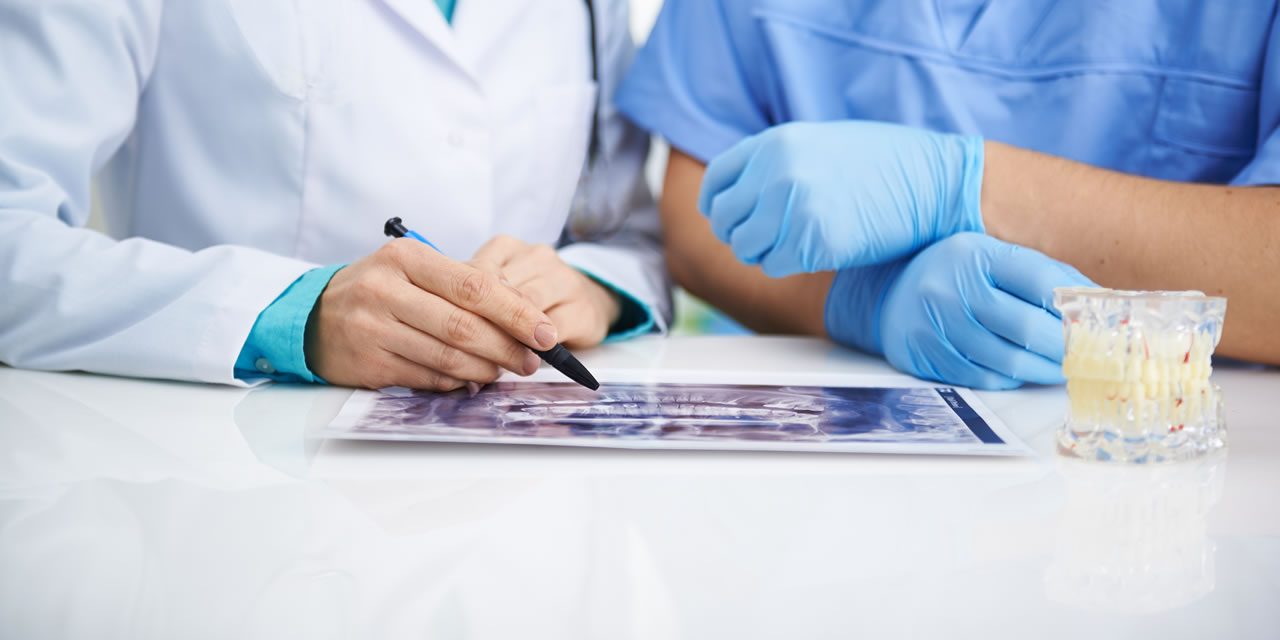
Screening for Oral Cancer
Quick, non-invasive, and painless examination that can detect early signs of oral cancer.
Oral cancer may be life-threatening if it is not detected early. Dentists typically screen for cancer in a regular oral exam, or a separate appointment can be booked if a patient has concerns about irregularities.
Early Detection is Best
Oral cancer includes cancers that affect the soft tissues of the mouth, including the lips, tongue, sinuses, palate, and throat.
Early detection offers the best chance of recovery and remission, as treatments are more effective in the early stages of cancer. According to the Oral Cancer Foundation, the rate of occurrence for oral cancers has grown on an annual basis. However, there is an 80-90% survival rate when oral cancer is detected and treated early.
Signs of Oral Cancer
Typically, oral cancer begins as an irregularity of the tissue in the mouth, including mouth sores, growths, thickening, swelling, lumps and bumps, and other unusual changes.
Other signs of oral cancer may also include:
- Unexplained or excessive bleeding in the mouth
- Loss of feeling or numbness in the mouth, face, or neck
- Difficulty moving the jaw to chew or speak
- Hoarseness or changes to the voice
- Unexplained weight loss
- Ear pain
Detecting the early signs of cancer is critical, as treatments should be started right away. If you have persistent symptoms that last more than two weeks, be sure to book an appointment with your dentist or another medical professional.
Risk Factors for Oral Cancer
Most oral cancers are caused by one of two risk factors. First, tobacco use and smoking can be a factor in the development of oral cancer. Second, exposure to the HPV-16 virus (which is also responsible for many cervical cancers in women) can be a cause. In some other cases, there are no direct links to any single cause.
Other risk factors for oral cancer include:
- Alcohol consumption
- Prolonged or repeated sun exposure (especially in lip cancer)
- Poor nutrition
- A weakened immune system
Combining smoking and alcohol can also cause additional risks.
Even non-smokers should be screened regularly for oral cancer, as not all oral cancer is caused by tobacco use.
Reducing the Risk of Oral Cancer
There are many ways to reduce the risk of oral cancer.
- Quit smoking. Smoking is one of the most prevalent causes of oral cancer. If you smoke, your dentist can recommend tools and resources that you can use to quit.
- See your dentist regularly. Early detection can help ensure treatment can be delivered quickly. Regular check-ups with your dentist will ensure oral cancer can be detected in the early stages.
- Take care of your oral health. People with poor oral hygiene may be at greater risk for developing mouth cancer.
- Seek out health care or dental care as soon as you notice symptoms. Keep an eye on symptoms and take note of issues such as sores that won’t heal or lumps that don’t resolve on their own.
The Oral Cancer Screening Process
The oral cancer screening process typically takes place during a dental exam. However, you may wish to book an appointment specifically to screen for oral cancer if you’ve noticed any of the common signs and symptoms.
Your dentist will begin by asking you questions about your risk factors for oral cancer. He or she will examine your head, neck, jaw, and oral cavity, often feeling the tissues for lumps or other irregularities.
If oral cancer is suspected as a cause for symptoms, you may need x-rays, CT scans, or MRIs, or a biopsy to confirm the diagnosis. Cancer treatments for the mouth may include radiation or chemotherapy treatment, or surgery to remove the tumour(s).
Find a Dentist Near You
You can find a dental professional near you using the 123Dentist search tool. Many of our dental clinics across Canada offer oral cancer screening.
